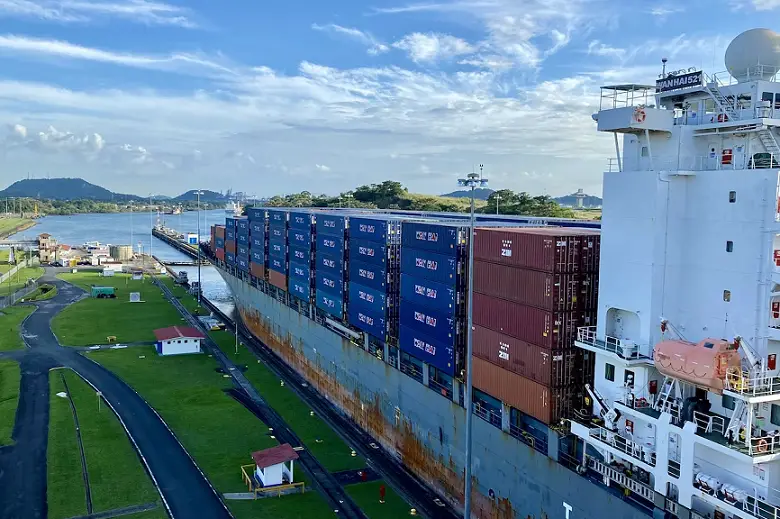On Friday, the Financial Times reported that global supply chains are now being threatened by major disruptions to the operations of two key trade waterways, the Panama Canal and the Suez Canal, according to shipping operators and ship owners.
The Panama Canal, which links the Pacific and Atlantic oceans using a 50 mile long series of locks, has seen operations shrunk due to a drought which has lowered the water level of the canal and slowed its operations, reducing its cargo capacity.
In the first week of December in 2022, there were 238 ships which transited the Panama Canal, however this year only 167 passed through the canal, according to trade media analysis group MarineTraffic. According to the canal authority, many of the vessels were forced to wait for up to two weeks to make the trip through the locks. Many vessels, rather than endure the costly delays of waiting, chose instead to divert their route for thousands of miles.
Rolf Habben Janse, the chief of German group Hapag-Lloyd, the fifth-largest owner of container ships in the world, said in an interview with FT said, “That drought in the Panama Canal is a serious concern.” The company has announced that it will be diverting at least 42 of its ships around the canal.
At the same time, the Suez canal, which connects the Mediterranean to the Red Sea is increasingly drawing concern from observers. As the hostilities between Israel and Hamas have grown in Gaza, the Houthi rebels based in Yemen have begun to launch several attacks on cargo vessels in the Red Sea, which lies just over 700 miles from the key waterway, in an effort to show support for Hamas.
Although the rebels have sought to only focus their attacks on ships owned by Israel, experts say the attacks could impact the safety of other ships attempting to transit the waterway.
Hapag-Lloyd’s Jansen said, “If the passage through the Suez would become more difficult [as well], that could cause serious disruptions [to global supply chains].” Experts note that disruptions in shipping would ultimately cause a surge in price inflation. Analysts point out that this is the worst possible time for such a situation, with the approach of the holiday buying season.
In an interview, Marco Forgione, director-general of the UK’s Institute of Export and International Trade, told FT, “There are supplies that just won’t be here in time for this Christmas.” He added that if the attacks near the canal worsened, and the global shipping environment found both waterways shut down simultaneously, the effects would be “catastrophic” for global commerce.
He warned, “Government and business need to be looking at what a resilient supply chain looks like… There is little that can be done for this Christmas. [But] if nothing is done, I think there is a [risk of] shortages through the course of next year.”

